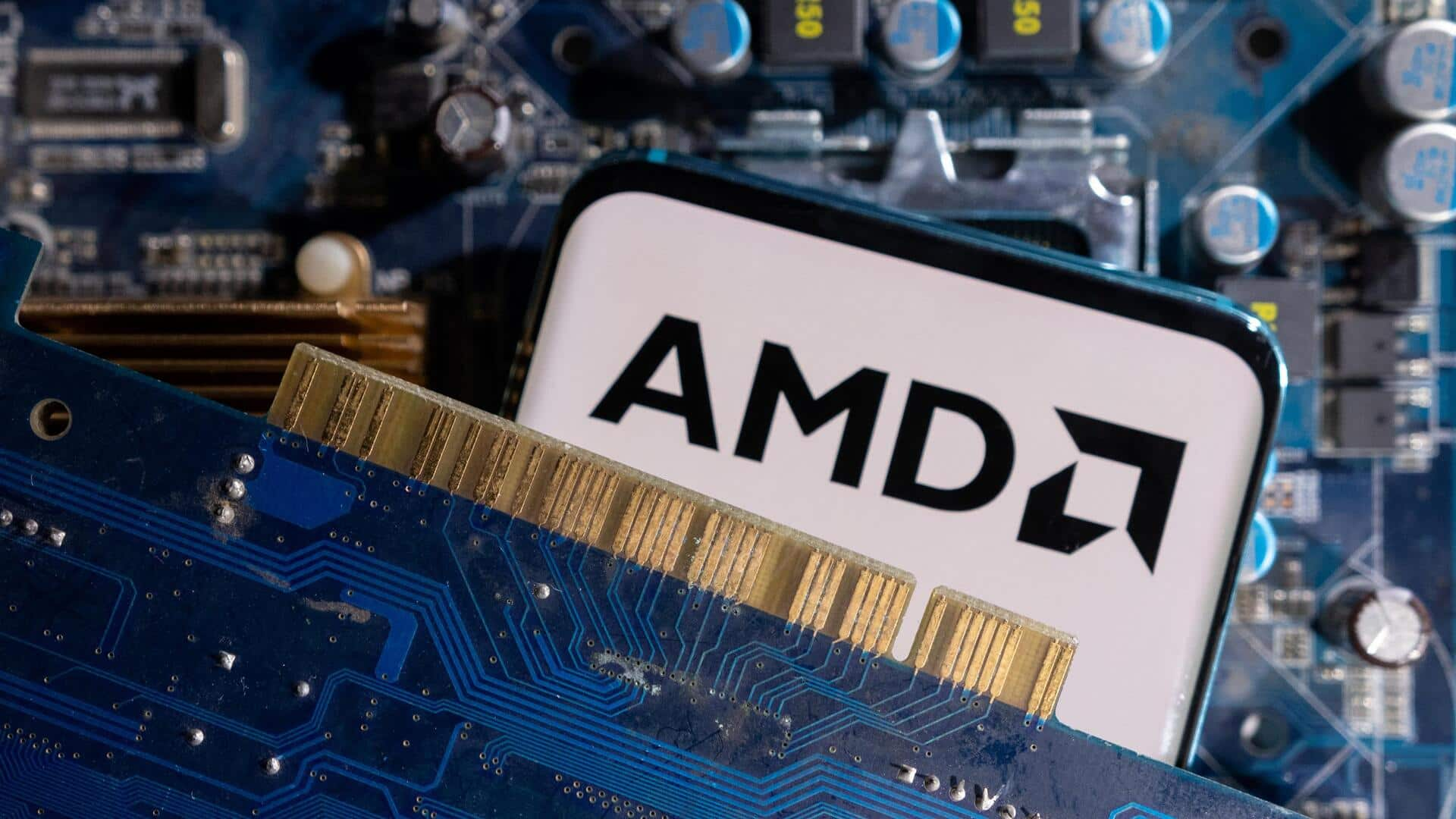
AMD faces US roadblock in AI chip sales to China
What's the story
US officials have informed Advanced Micro Devices Inc. (AMD) that their artificial intelligence (AI) chip, designed for the Chinese market, is too powerful to be sold without a license. This decision puts another US semiconductor company under Washington's watchful eye as it aims to restrict exports of advanced technologies to China. The firm has faced a similar fate as its rival NVIDIA.
Legal
Complications surrounding license
AMD had hoped to get permission from the US Commerce Department to sell the AI chip to Chinese customers. This is because it performs at a lower level than what the firm sells elsewhere. However, US officials insisted that AMD must still get a license from the Bureau of Industry and Security (BIS). AMD has not commented on whether it is seeking a license, and the BIS declined to comment.
Name
What do we know about the AMD chip?
The China-tailored AMD chip in question, is internally referred to as MI309. The identity of the Chinese customer trying to buy the AI chip has not been disclosed. To move forward with the sale, securing a license is a must.
Moves
Steps taken by NVIDIA
In an effort to comply with US officials' tightening restrictions on chips, NVIDIA, AMD's California competitor, has been involved in downgrading its powerful AI chips destined for China. The US wants to lower Chinese access to cutting-edge semiconductors that can be used to develop AI models, as well as tools used to build those chips. It fears that Beijing will gain a military advantage.
Steps
China is reducing US dependence
Leading Chinese tech firms, such as Baidu and Tencent Holdings, claim to have stockpiled enough powerful chips from NVIDIA to improve their chatbots' prowess for at least one more year. Shenzhen-based Huawei is working on the development of its own AI semiconductors and chipmaking capability. This might eventually aid Chinese firms in filling the gap that the US ban created.